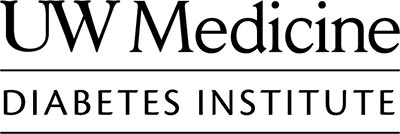Chongren Tang, PhD
Email: crtang@uw.edu
- Research Associate Professor of Medicine, Division of Metabolism, Endocrinology and Nutrition
- Home Department Website: https://endocrinology.uw.edu/
Dr. Tang received his medical degree BM (ECFMG certified, MD equivalent) from Shanghai Medical University, China in 1992 and PhD from the University of Texas at Austin in 2002. Dr. Tang then joined the laboratory of Dr. John Oram at the University of Washington as a postdoctoral fellow in the Division of Metabolism and Endocrinology in 2002 and was appointed to the faculty in 2007. He then joined the Diabetes and Obesity Center of Excellence and currently is a Research Associate Professor in the Department of Medicine at the University of Washington.
Research Interests
Cholesterol accumulation in arterial wall macrophages and inflammation of artery wall both contribute to the development of cardiovascular disease (CVD). HDL appears to protect against CVD by several mechanisms that include removal of cholesterol from arterial wall cells and suppression of inflammation. Two major cardioprotective factors associated with HDL metabolism is ATP-binding cassette transporter A1 (ABCA1), a cell membrane protein that exports cholesterol and phospholipids from cells to lipid-depleted HDL and its apolipoproteins, such as apoA-I; and ATP-binding cassette transporter G1 (ABCG1) which transports cholesterol to mature HDLparticles. Dr Tang’s research focuses on understanding the cellular processes and mechanisms involved in the lipid export and the anti-inflammatory activities of ABCA1 and ABCG1. Since ABCA1 and ABCG1 are major factors that raise HDL levels and protect against CVD, another focus of Dr.Tang’s research is to identify biochemical processes that regulates their expression and functions. Specifically, Dr.Tang’s lab studies the roles and mechanisms of diabetes and diabetes-associated factors on the expression and function of ABCA1 and ABCG1 in vitro and in vivo in collaboration with Dr. Alan Chait, Dr. Karin Bornfeldt and Dr. Jay Heinecke
How can this research help people with diabetes?
By identifying the mechanisms whereby cholesterol transporters prevent cholesterol accumulation and inflammation, new drug targets could be discovered to treat and prevent cardiovascular complications of diabetes

